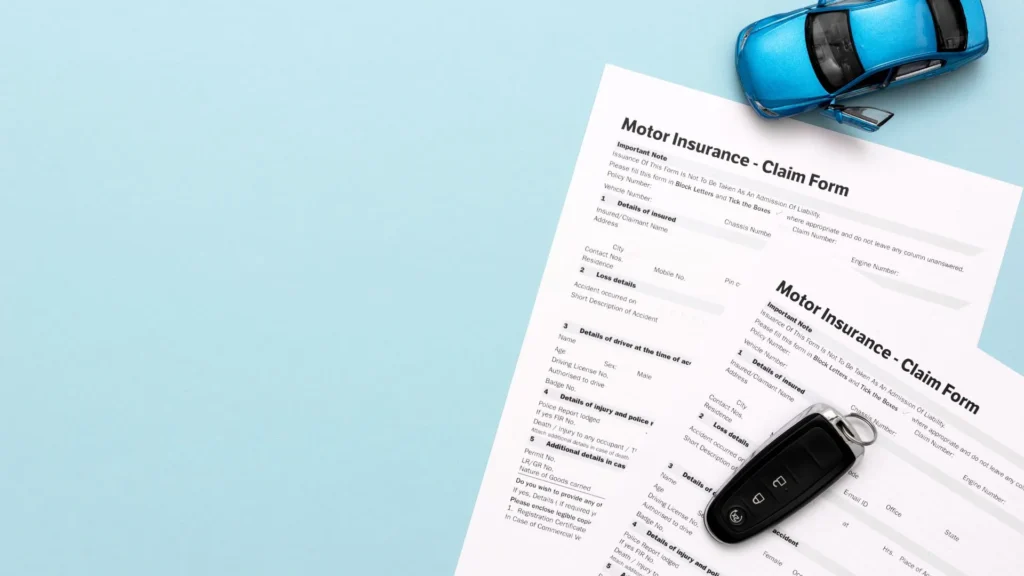Navigating the auto insurance may be difficult, particularly when purchasing a vehicle. Most lenders mandate that borrowers have full coverage insurance on their borrowed cars. However, some may wonder if they can only get liability insurance and what it means. Can You Get Liability Insurance on a Financed Car? In this article, we will look at the complexities of insurance for financed cars, especially the practicality of obtaining liability insurance.
Can I Have Liability Insurance on a Financed Car?
Understanding the complexities of insurance coverage for a financed vehicle is critical, particularly when considering liability insurance. Liability insurance, by definition, pays for damages to others in an event in which you are at fault. It comprises two primary parts: physical injury responsibility, which handles medical expenditures for others, and property damage liability, which covers harm to someone else’s property.
In contrast, complete coverage includes comprehensive and collision coverage and liability insurance. Comprehensive coverage covers your vehicle against non-collision incidents such as theft, vandalism, and natural catastrophes, whereas collision coverage kicks in when your automobile collides with another vehicle or object.
Lenders typically need complete coverage when financing automobiles. This criterion is not random; it arises from the fact that the car being financed acts as security for the loan. Lenders try to protect themselves from potential financial losses due to accidents or unanticipated occurrences.
While liability insurance protects against obligations to others, it does not cover vehicle damage in the case of an accident, theft, or other non-collision situations. Ensuring the loaned vehicle is fully insured is a risk-reduction approach for the lender. As financial partners in the vehicle, lenders aim to avoid such situations. By insisting on complete coverage, they guarantee that the borrowed vehicle is insured against a wide range of possible risks, which is in the best interests of both the borrower and the lender.
Can I Choose Only Liability Insurance if I Own the Car Outright?
You can choose your insurance coverage when you own your car entirely and are not obligated to finance it. In such cases, you can only purchase liability insurance, typically determined by various criteria, such as the vehicle’s age and market worth.
When you fully own your vehicle, the dynamics of insurance options change, allowing you to customize your coverage to meet your needs. Liability insurance, which delivers for damages to others in incidents in which you are at fault, becomes a feasible and cost-effective choice. This coverage often includes physical injury liability, which covers medical expenditures for others, and property damage liability, which covers damage to another person’s property.
Practical concerns may lead to the choice to get liability insurance. For example, owners of older vehicles with lower market values may discover that the expense of comprehensive and collision insurance outweighs the possible advantages. In such instances, selecting liability-only coverage might be a financially wise decision.
However, it is essential to highlight that this flexibility in insurance options depends on the need for more finance. When an automobile is financed, the lender takes a significant financial stake in the vehicle until the loan is entirely paid off. As a risk-mitigation tool, lenders often need complete coverage, which includes liability insurance, comprehensive coverage for non-collision occurrences, and collision coverage for accidents.
The lender’s demand for complete coverage is intended to preserve their investment and guarantee that the vehicle is fully insured against various potential problems. Until the financing arrangement is fulfilled, the lender has a vested interest in the total protection of the funded vehicle.
What Happens if I Only Have Liability Insurance on a Financed Car?
Opting for merely liability insurance on a financed vehicle, particularly against the lender’s instructions, might seriously affect your financial security and adherence to contractual obligations. While liability insurance is necessary to cover losses to others, it does not provide the full coverage required for your car.
Liability insurance typically covers third-party claims when you are at fault in an accident. It encompasses physical injury responsibility, which covers medical bills for others, and property damage liability, which deals with harm to someone else’s property. However, it expressly excludes coverage for your car in the event of theft, non-collision damage, or incidents in which you are held liable.
In a financed automobile, relying entirely on liability insurance may violate the conditions of your loan agreement. Most lenders insist that borrowers retain full coverage on loaned autos. Full coverage often includes liability insurance, comprehensive coverage for non-collision occurrences, and collision coverage for accidents.
You may unwittingly break the lender’s contractual responsibilities by picking merely liability insurance. Lenders want complete coverage to safeguard their financial interests in the car. This provision guarantees that the automobile, which serves as collateral for the loan, is appropriately protected against possible threats.
You risk breaching your contract if you fail to meet the lender’s insurance requirements and continue to carry simple liability coverage. This breach might result in severe penalties, such as the lender putting you in default and even repossessing the financed car. It is critical to understand that keeping the required insurance coverage is more than simply an issue of compliance; it is directly linked to protecting the lender’s investment in the vehicle.
People Also Read : What Happens if You Crash a Financed Car with Insurance
Can I Change My Insurance Coverage After Financing is Complete?
After you’ve completed the financing and ultimately own your vehicle, you’ll have more control over your insurance coverage. With the vehicle loan paid off, the lender’s specified insurance requirements no longer govern your policy, giving you additional options for personalizing coverage to your needs.
When you own the automobile outright, you might reassess your insurance coverage. While lenders frequently need full coverage, including comprehensive and collision coverage and liability insurance, once the loan is paid off in full, this requirement is no longer required. As the only owner, you can keep full coverage or switch to liability-only insurance.
Several variables determine whether you keep full coverage or switch to liability-only insurance. The age and value of the vehicle are important considerations; older automobiles with lower market values may be eligible for liability-only coverage, particularly if the cost of premiums surpasses the potential advantages of comprehensive and collision coverage.
You must notify your insurance person of any changes in ownership status as soon as possible. Updating your policy to reflect the absence of a lienholder streamlines the insurance and claims processes. Removing the lender as a lienholder means that any claims payments or policy-related correspondence are directed directly to you, reducing the administrative components of insurance management.
Can I Purchase Additional Coverage Alongside Liability Insurance for My Financed Car?
While liability insurance is an essential component of coverage for a financed vehicle, it is not the only option for increasing your protection. It is feasible to strengthen your insurance portfolio by adding additional coverages and personalizing your policy to meet specific needs and risks.
Although lenders sometimes need comprehensive and collision coverage as part of complete coverage, you can go beyond these fundamentals. Along with your liability insurance, you may want to explore the following supplementary coverages:
Gap Insurance: This coverage is crucial if your financed automobile is totaled and the insurance payment falls short of covering the remaining loan sum. Gap insurance bridges this financial gap, guaranteeing you have a manageable sum.
Rental Reimbursement: If your automobile needs covered repairs and is in the shop for an extended period, rental reimbursement coverage might be helpful. It helps to cover the expense of hiring a temporary replacement car, allowing you to be mobile even while your primary vehicle is being repaired.
Emergency Roadside assist: Choosing emergency roadside help as an optional coverage might be a sensible move. This service comes to your help in the event of an unforeseen breakdown or other roadside issues, giving you the support you require to get back on the road quickly.
The beauty of these extra coverages is their potential to provide a more comprehensive safety net for your financed car. While liability insurance covers losses to others in incidents in which you are at fault, these supplementary coverages help to address specific scenarios and potential coverage gaps.
Conclusion
In the complicated world of vehicle insurance, mastering the complexity of financing and coverage options is critical. Understanding the fine line between liability insurance and comprehensive coverage is more than simply legal compliance; it’s about protecting your investment and financial security. While the range of insurance options increases when you completely own your vehicle, the route is complex. From the strict criteria imposed before funding to the liberty acquired after payment, each stage needs careful attention.
Consider Beem to simplify the process and give you more control over your insurance options. Beem provides a seamless platform for bespoke coverage, ensuring you strike the correct balance whether managing finance commitments or enjoying ownership freedom. Improve your insurance experience with Beem, where protection meets accuracy.
FAQs
What are the minimum car insurance requirements in Cicero?
Liability coverage is often required for minimal vehicle insurance in Cicero, as in many other areas. This includes physical injury responsibility, which covers medical expenditures for others in an accident in which you are at fault, and property damage liability, which addresses harm to the property of others. The minimums might vary, so check with local authorities or insurance providers to guarantee compliance with Cicero’s legislation.
What types of coverage are recommended for Cicero residents?
While completing the minimal requirements is critical, Cicero residents are frequently recommended to investigate extra coverage options for further safety. Comprehensive and crash coverage can protect your car, while uninsured/underinsured motorist policy assures protection if you get into an accident with an underinsured driver. Personal injury protection (PIP) and medical payment coverage are also suggested to provide additional financial security in the event of an injury.
How do I find the right car insurance provider in Cicero?
It would help if you researched Cicero’s best vehicle insurance provider extensively. To ensure competitive pricing, compare quotations from several providers, investigate client evaluations and satisfaction ratings to determine the company’s reputation and consider the coverage options, discounts, and the provider’s financial viability.
Can I adjust my coverage based on my budget in Cicero?
Yes, Cicero residents can typically alter their coverage to fit their budget. Car insurance companies often allow flexibility in selecting coverage levels and altering deductibles to meet financial limits. It is recommended to carefully analyze your budget, considering both premium rates and potential out-of-pocket payments in the case of a claim. Discussing your financial concerns with your insurance provider or agent helps build a coverage plan that fits your financial needs while providing the necessary security.
Are there any additional insurance requirements unique to Cicero?
While Cicero follows conventional insurance standards, remaining current on special local rules is critical. Certain places may have particular concerns or restrictions. Keeping up with local legislation and speaking with insurance specialists knowledgeable about Cicero’s requirements can guarantee you fulfill your commitments. Awareness of unique characteristics helps you make educated judgments regarding your coverage while complying with Cicero’s local insurance laws.





























